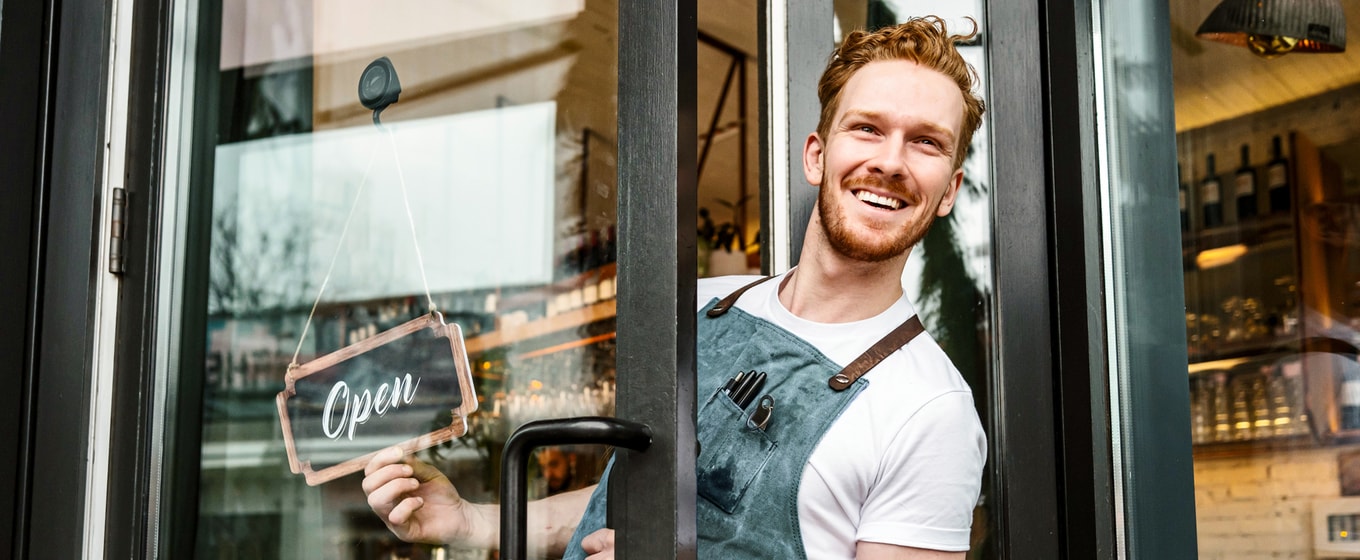The Recovery Loan Scheme enabled small and medium-sized businesses to access financial support. It was designed to help SMEs grow with payments they can easily afford, to support access to finance for UK businesses.
The scheme made available:
- up to £2 million per business group
- up to £1 million for business groups in scope of the Northern Ireland Protocol
Originally given financial backing by the Secretary of State in 2021, the scheme went through a number of changes.
As of 1st July 2024, the RLS has been extended and rebranded as the Growth Guarantee Scheme (GGS). This guide will talk you through both schemes, highlighting their key features and how they can help your business. We'll discuss eligibility and help you decide whether to apply for the scheme or obtain a business loan.
What is the Recovery Loan Scheme?
The Recovery Loan Scheme was introduced in April 2021 to help businesses recover from the economic impacts of COVID-19. It replaced earlier programs like the Coronavirus Large Business Interruption Loan Scheme (CLBILS) and The Bounce Back Loans Scheme (BBLS).
Key features of the RLS included:
- Borrowing limits of up to £2 million for most businesses, or £1 million for those affected by the Northern Ireland Protocol.
- Support for various financing options, including term loans, overdrafts, invoice finance, and asset finance.
- A government-backed guarantee covering 70% of the loan amount, reducing lender risk.
Eligibility criteria included:
- A turnover of £45 million or less.
- Proof of trading viability and not being in financial difficulty.
Businesses could use the funds for cash flow management, investments, or growth. However, lenders prioritised offering their standard products first. The RLS loan scheme was most beneficial for businesses that didn’t meet regular lending criteria.
What was the new Recovery Loan Scheme (RLS)?
If you applied for a recovery loan in 2023, you would have noticed that the number of available providers was limited. RLS loans weren’t available to the majority of customers. This was due to the limited number of lenders approved by the British Business Bank.
The third version of the RLS continued to offer support to businesses. But there were some important differences compared to previous versions.
Under the last version, lenders had to offer support via their own lending products first.
Additionally, the primary use of RLS was to fund businesses that would not meet the lenders' regular lending criteria. Factors such as business credit score, trading time, turnover, or homeowner status may have contributed to this.
Lenders had to confirm that they would not have been able to finance the business under normal commercial terms. Lenders would only offer you an RLS loan if you failed to meet their typical business loan criteria.
This meant that access to the scheme was more restricted than in previous years.
What is the Growth Guarantee Scheme?
As of July 2024, the Growth Guarantee Scheme has replaced the RLS. It builds on the principles of the RLS but comes with some changes. It was launched to provide a wider range of financial products and support businesses looking to invest and grow.
Key features of the Growth Guarantee Scheme (GGS) include:
- Borrowing limits of up to £2 million for most businesses and £1 million for those under the Northern Ireland Protocol.
- Support for various products, including term loans, overdrafts, asset finance, and invoice finance.
- A 70% government-backed guarantee to reduce lender risk.
- Broader eligibility, covering businesses with a turnover of up to £45 million and proof of viability.
This scheme aims to provide businesses with better opportunities to secure government-backed loans for growth and development.
How do the schemes compare?
While both schemes share similarities, such as government guarantees and borrowing limits, the Growth Guarantee Scheme offers several enhancements, such as:
- Lender Flexibility: Like the RLS, lenders must offer standard loans first. However, the GGS gives them more discretion when assessing businesses that don’t meet standard criteria.
- Broader Products: The GGS supports more financial products than the RLS, enabling businesses to find funding tailored to their needs.
Interest rates under the schemes
Interest rates vary based on the lender and specific loan terms.
- For the Recovery Loan Scheme, rates reflected the reduced risk from the government guarantee.
- Similarly, the Growth Guarantee Scheme interest rate depends on the lender’s proposal, but businesses are encouraged to compare rates from approved Growth Guarantee Scheme lenders such as Barclays, HSBC, and NatWest.
Eligibility for the Growth Guarantee Scheme (GGS)
To qualify for the UK Growth Guarantee Scheme, your business must:
- Be based in the UK and trading.
- Have a turnover of £45 million or less.
- Be viable and not in financial difficulty.
You can check your eligibility through participating banks like HSBC, Barclays, and NatWest, or via the British Business Bank Growth Guarantee Scheme website.
How to apply for the Growth Guarantee Scheme
Businesses interested in the scheme can apply for the Growth Guarantee Scheme directly through approved lenders or online at gov.uk. Look for lenders like HSBC Growth Guarantee Scheme and Barclays Growth Guarantee Scheme.
The process involves:
- Assessing your business needs and eligibility.
- Consulting with lenders about products under the Growth Guarantee Scheme UK.
- Submitting your application along with supporting documents.
For additional resources, visit the British Business Bank.
Your common questions answered
The Growth Guarantee Scheme (GGS) is a government-backed initiative offering financial support to UK businesses through loans, overdrafts, and asset financing. It aims to help businesses grow and invest with more flexible funding options.
Businesses can borrow up to £2 million under the Growth Guarantee Scheme UK, or £1 million if affected by the Northern Ireland Protocol.
The Growth Guarantee Scheme replaced the RLS on 1st July 2024.
Approved lenders include Barclays, NatWest, and HSBC, among others.
A loan recovery scheme is a financial program designed to help businesses recover from economic challenges, typically by providing loans with favourable terms. Such schemes often aim to support businesses affected by crises, enabling them to stabilise and grow.
Interest rates under the Recovery Loan Scheme varied depending on the lender.
The rates were typically influenced by the lender's specific terms and the government's 70% guarantee, which aimed to reduce risks for lenders. Borrowers were encouraged to shop around for the best rates.
The Recovery Loan Scheme officially ended on 1st July 2024, when it was replaced by the Growth Guarantee Scheme.
The Recovery Loan Scheme (RLS) was designed for businesses that needed support after the initial impacts of the COVID-19 pandemic, while the Coronavirus Business Interruption Loan Scheme (CBILS) provided loans to support businesses affected during the pandemic. RLS allowed for higher loan amounts and had different eligibility criteria compared to CBILS.
Bounce Back Loans (BBLs) are generally not written off unless the borrower is declared bankrupt or enters a formal insolvency process. However, borrowers can seek to negotiate terms with their lenders if they are facing financial difficulties.
Yes, businesses could have both a Bounce Back Loan and a Recovery Loan simultaneously, provided they met the eligibility criteria for each scheme. However, the total amount borrowed across both schemes would need to stay within the limits set by each program.
As of 1st July 2024, the Growth Guarantee Scheme replaced the Recovery Loan Scheme. This new program aims to continue supporting smaller UK businesses in their growth and investment efforts.
Do you have a question that you can't see? Check out our FAQ page.









These cookies are set by a range of social media services that we have added to the site to enable you to share our content with your friends and networks. They are capable of tracking your browser across other sites and building up a profile of your interests. This may impact the content and messages you see on other websites you visit.
If you do not allow these cookies you may not be able to use or see these sharing tools.